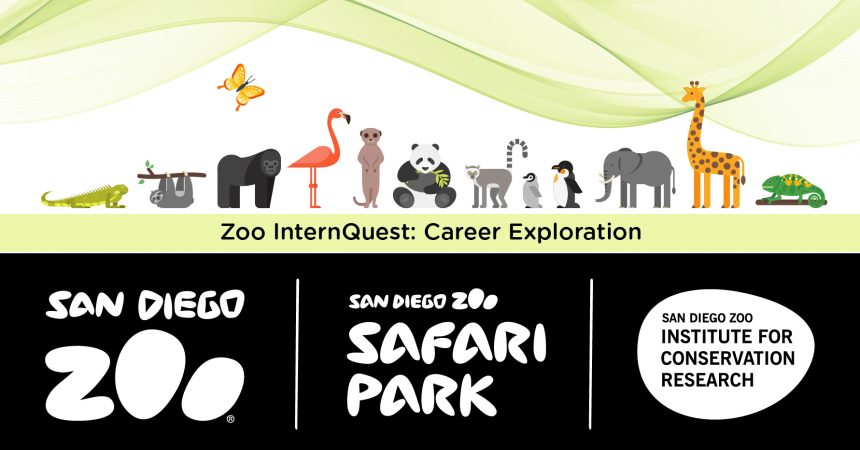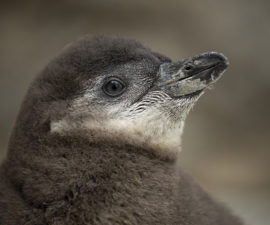Zoo InternQuest is a seven-week career exploration program for San Diego County high school juniors and seniors. Students have the unique opportunity to meet professionals working for the San Diego Zoo, Safari Park, and Institute for Conservation Research, learn about their jobs, and then blog about their experience online. Follow their adventures here on the Zoo’s website!
What if there was something that could be used with any animal that would help it thrive in a zoo setting? What if this same concept would result in animals reproducing in zoos so those born could be introduced into the wild? Something like this would be huge for wildlife conservation everywhere! Well, this “something” is called animal welfare. What exactly does welfare mean? When it comes to animals in the zoo, welfare is the different methods they use to keep their animals happy and healthy both physically and mentally.
Some types of welfare include providing opportunities for a well-balanced diet, the ability to self-maintain, optimal health, to express species specific behavior, as well as choice and control. Examples of these elements of welfare are seen on a daily basis throughout the Zoo. A well-balanced diet is essential to all animals, especially those in zoos. The San Diego Zoo provides a healthy variety of food for each animal. Even the koalas who only eat eucalyptus are fed five different types of the plant. One way animals are given the chance to self-maintain at the Zoo is allowing animals to build their own nests for their babies by gathering the materials keepers spread through the exhibit. It may come as a surprise to you, but bears make a sort of ground nest for their young from plant materials in their habitat.
Optimal health is provided by the amazing staff of veterinarians who carefully monitor all aspects of an animal’s health. Species specific behaviors are highlighted by animals in zoos being grouped with species they would normally co-exist with in the wild. This provides the intricate social structure necessary for mental wellness that would otherwise be lacking in managed care. The ability of choice and control is one of the most important aspects of welfare. Whether it be an elephant deciding if it wants bathe under the sprinkler or a rhino having access to multiple areas of its exhibit. All of these examples come together to ensure animals welfare which leads to the conservation of many species.
One vital aspect of welfare is enrichment. Enrichment is different tools the zoo uses to ensure the animals are receiving proper welfare. Examples of this includes items such as puzzles or balls for animals to interact with and sensory elements to mentally stimulate animals. Enrichment can be beneficial in opening up opportunities for greater animal reproduction and introducing endangered species into their natural habitat.
Welfare plays a role in contributing to the survival of animals born in managed care that are to be released in the wild. An endangered Hawaiian bird called the ‘Alalā are currently in managed care throughout the Hawaiian Islands. The goal is to release the ‘Alalā that are born in managed care into the wild, but they are in imminent danger if released without knowing predators they need to avoid. This problem is solved through predation training in which keepers play the sound of a predator and then introducing something unpleasant during the vocalization so the animal associates the undesirable thing to a predator. This helps the animal learn species specific behaviors needed for survival in the wild.
Want to get involved? The Zoo has volunteer and internship programs for people who are creative and good at making things to help provide enrichment items for the animals. One way the general public have helped is by constructing toys for animals like birds, who tend to enjoy enrichment they can destroy with their powerful beaks. Also, engineers are always welcome to help design new and fun ways to enrich animals that aren’t easily challenged. Animals who receive proper enrichment are more likely to reproduce and ensure their species is around for future generations. You have the privilege to play a role in ending extinction by aiding in the enrichment of the Zoo’s animals.
Noah, Conservation Team
Week Five, Fall Session 2018


